We’re on our way to England tonight for three weeks.
-
Hampstead Heath is vast. We only covered maybe a third of it walking across it toward Highgate and later walking back across it at another angle from below Highgate Cemetery. It also gives something much closer to solitude than the parks closer to the center of London.
This allee reminded me of some German parks we’ve been to.
In Hampstead Heath, Spouse noticed a guy in a Heath t-shirt doing something mysterious at the base of a poplar tree surrounded by poplar fluff and asked him what he was doing.
Answer: counting the shells left behind by the hornet moth larvae infesting balsam poplar trees with fatal results these days.
-
In Hampstead Heath, Spouse noticed a guy in a Heath t-shirt doing something mysterious at the base of a poplar tree surrounded by poplar fluff and asked him what he was doing.
Answer: counting the shells left behind by the hornet moth larvae infesting balsam poplar trees with fatal results these days.
The East section of Highgate Cemetery is the more recent section (19th century till now, making it roughly contemporaneous with Green-Wood in Brooklyn.) It’s also the part that’s cheaper to visit and lets you wander without a tour guide, so that’s where we went.
When you enter, there’s no doubt whatsoever what—who—is the main attraction.
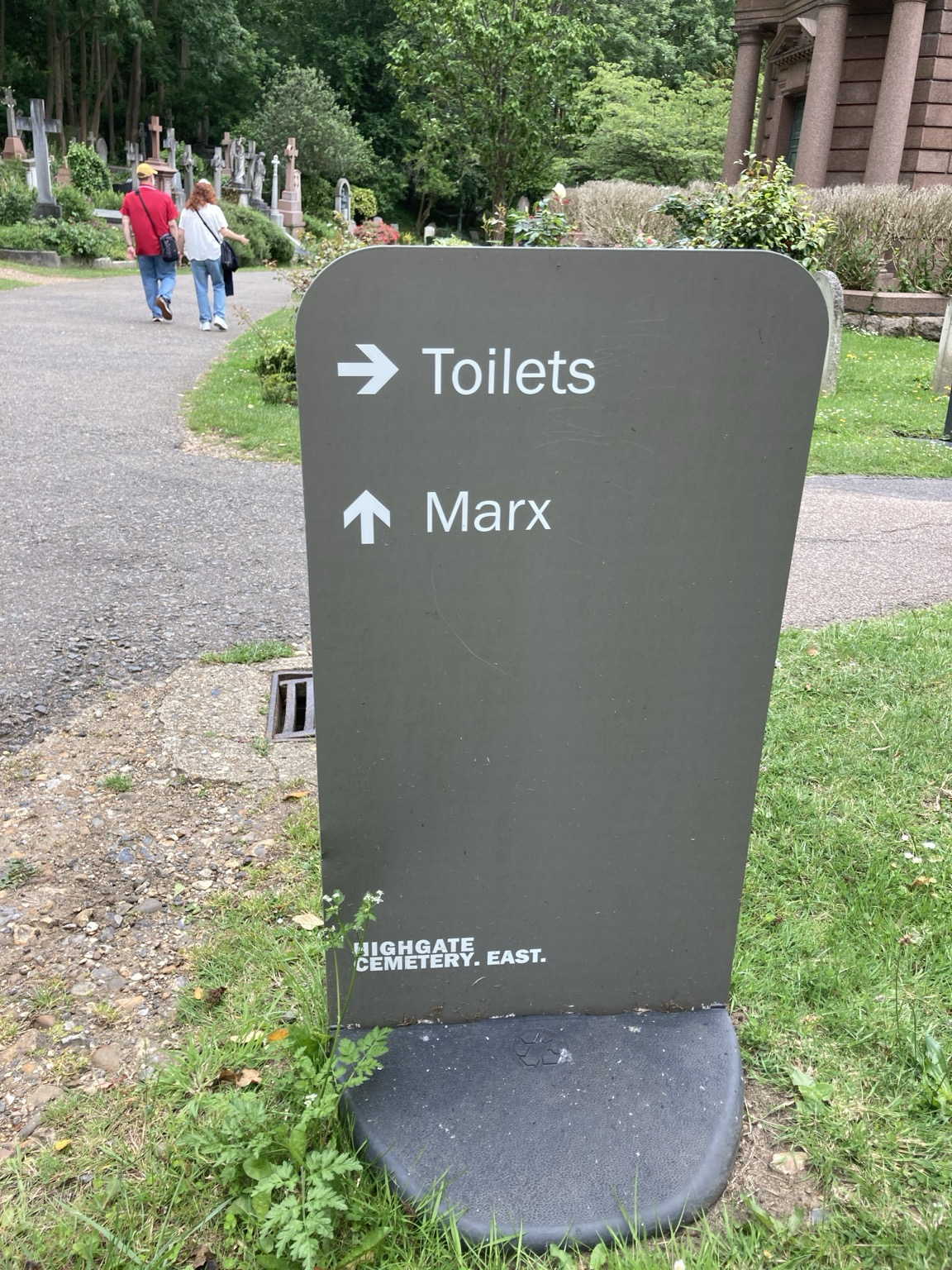
-
The East section of Highgate Cemetery is the more recent section (19th century till now, making it roughly contemporaneous with Green-Wood in Brooklyn.) It’s also the part that’s cheaper to visit and lets you wander without a tour guide, so that’s where we went.
When you enter, there’s no doubt whatsoever what—who—is the main attraction.

On the way to Karl Marx’s grave we stopped at Shura Cherkassky’s. He was a classical pianist with a gorgeous sound who was all about the music, egoless, a little old guy who could hold an audience spellbound with a minimum of movement onstage. His repertoire ranged from Rameau to Stockhausen.
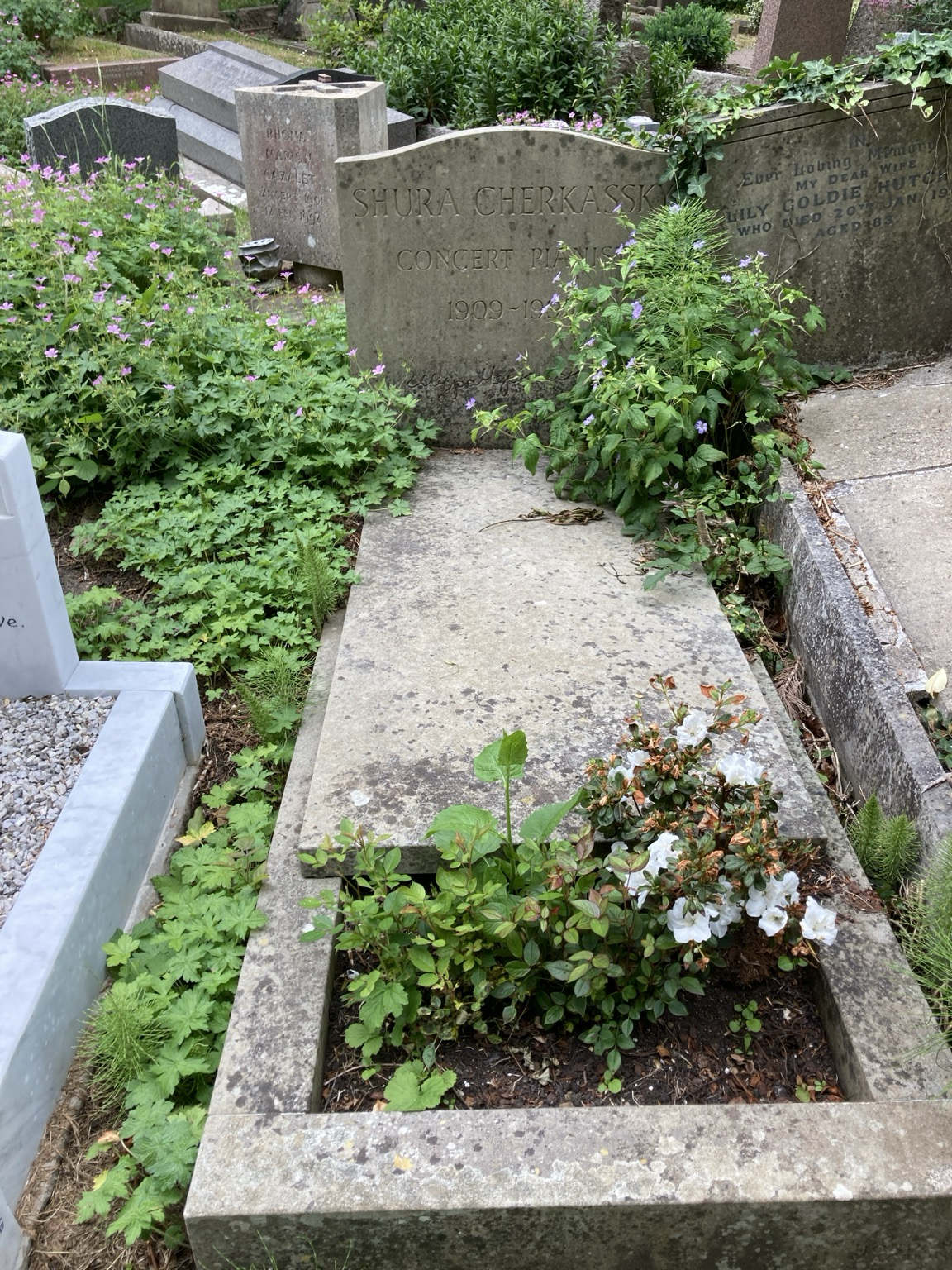
-
On the way to Karl Marx’s grave we stopped at Shura Cherkassky’s. He was a classical pianist with a gorgeous sound who was all about the music, egoless, a little old guy who could hold an audience spellbound with a minimum of movement onstage. His repertoire ranged from Rameau to Stockhausen.

-
(Sorry, my photo of George Eliot’s Stone is illegible due, I assume, air pollution eroding the inscription.)
-
The great man gets a lot of tribute to this day. While we were there today a South Asian woman laid a bouquet in front of the Marx monument.
In front of the monument were a lot of things left by Chinese people; to the right a rainbow beaded bracelet.
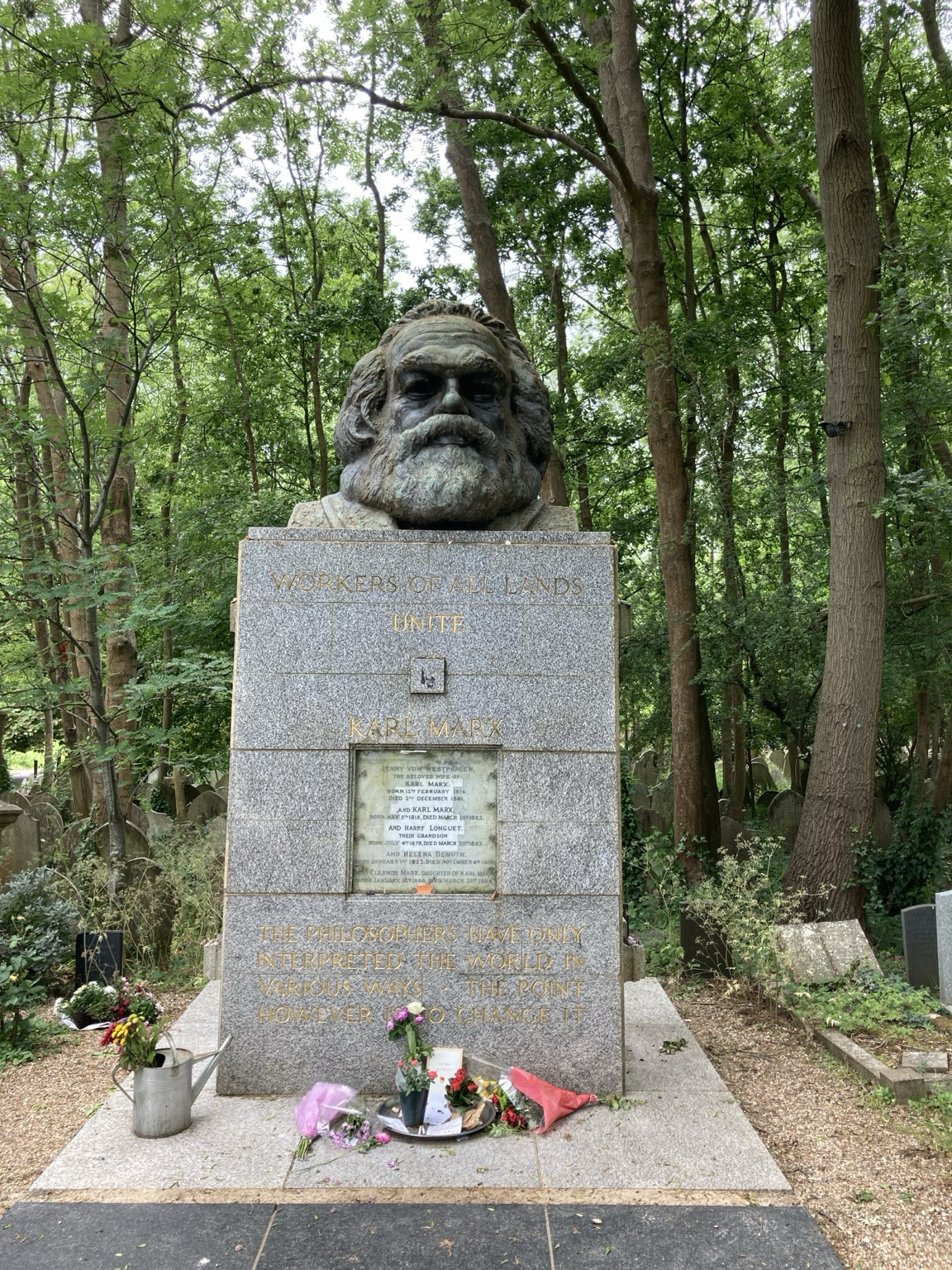
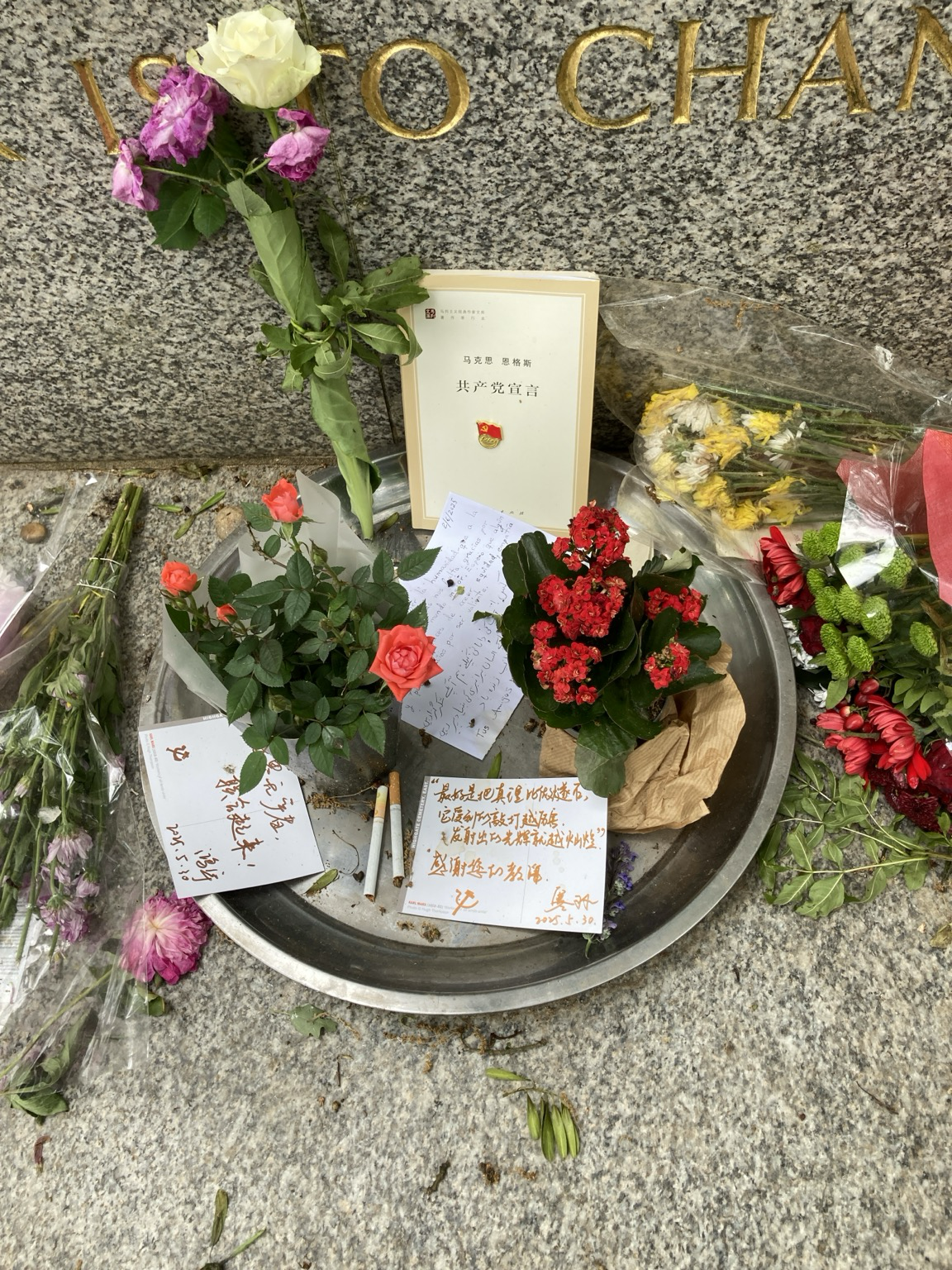

At the Marx monument we had a conversation with a cemetery employee of a few decades’ standing.
He said marble monuments aren’t allowed anymore because they erode into illegibility too fast. And granite mustn’t be polished to a gaudy shine!
And…the cemetery is full. This doesn’t mean nobody can be buried there anymore, but only on top of an existing grave. And to do that you need permission from the relatives of the deceased below. And if they can’t be found, well, it’s difficult and time-consuming.
The guy also told me he used to bowl regularly with someone for thirty years before learning that he too was a gravedigger.
-
At the Marx monument we had a conversation with a cemetery employee of a few decades’ standing.
He said marble monuments aren’t allowed anymore because they erode into illegibility too fast. And granite mustn’t be polished to a gaudy shine!
And…the cemetery is full. This doesn’t mean nobody can be buried there anymore, but only on top of an existing grave. And to do that you need permission from the relatives of the deceased below. And if they can’t be found, well, it’s difficult and time-consuming.
The guy also told me he used to bowl regularly with someone for thirty years before learning that he too was a gravedigger.
Today was museum weather again, so we headed for the British Museum.
The British Museum used to be as much a library as a museum. It’s where Karl Marx did most of his research for _Capital_, and Orwell, Woolf, Garvey among others worked on their books in the Reading Room.
But now the Reading Room, beautiful as it is, has nobody sitting at those concentric arcs of desks: the institution has decided that the public can’t be trusted to not harm the facilities. So now visitors can just stand at the perimeter and gaze at the awesome interior.
A guard told me with sadness in her voice that the institution is currently trying to figure out what the room might be used for in the future.
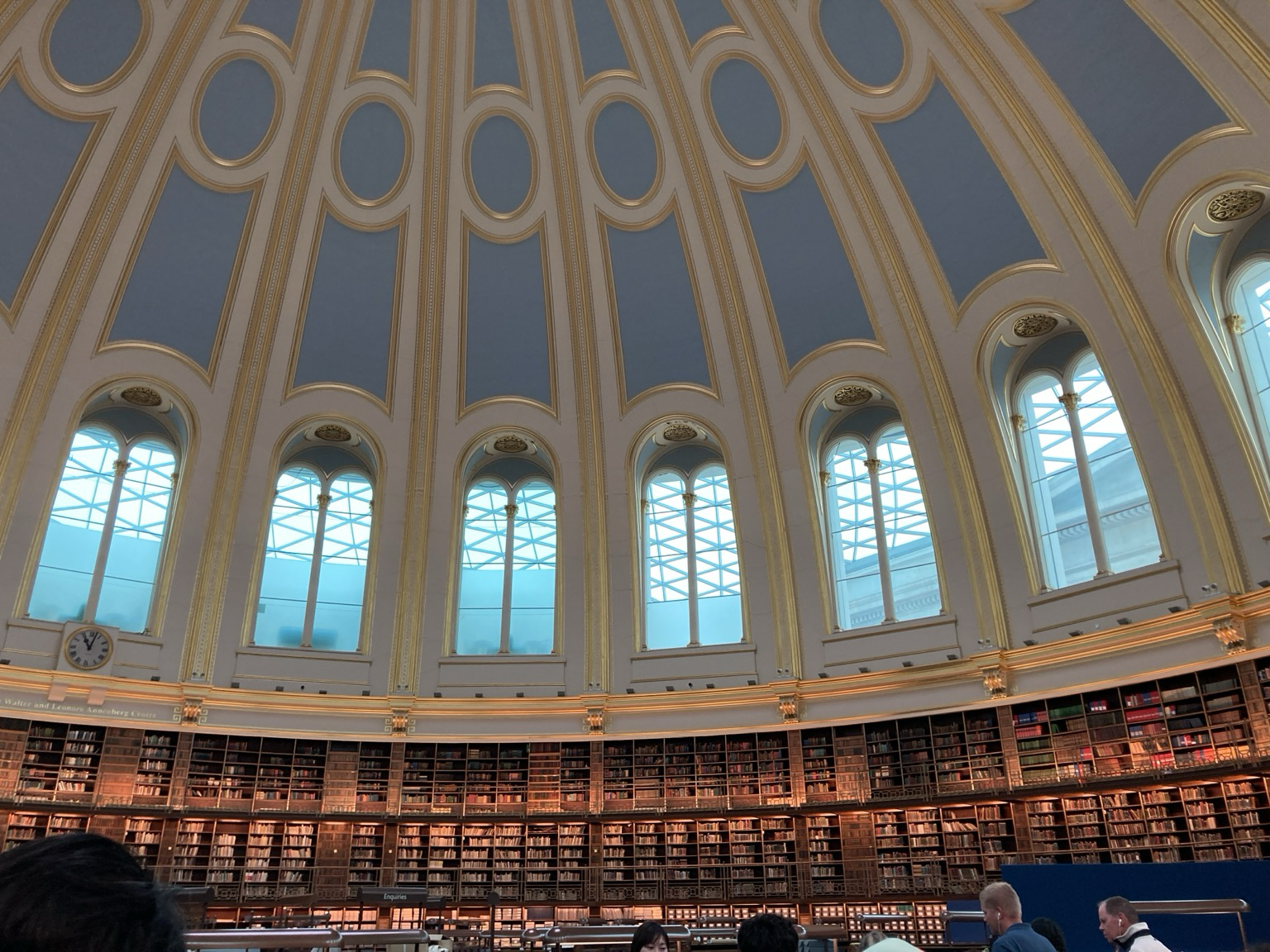
-
Today was museum weather again, so we headed for the British Museum.
The British Museum used to be as much a library as a museum. It’s where Karl Marx did most of his research for _Capital_, and Orwell, Woolf, Garvey among others worked on their books in the Reading Room.
But now the Reading Room, beautiful as it is, has nobody sitting at those concentric arcs of desks: the institution has decided that the public can’t be trusted to not harm the facilities. So now visitors can just stand at the perimeter and gaze at the awesome interior.
A guard told me with sadness in her voice that the institution is currently trying to figure out what the room might be used for in the future.

To my mind the British Museum isn’t mainly for aesthetic experiences, rather it’s for learning how people lived in many parts of the world over ~5 milliennia by glimpsing their material culture.
The Museum was able to acquire (or loot) some amazing objects like the immensely long relief from the palace of Nineveh near modern-day Basra.
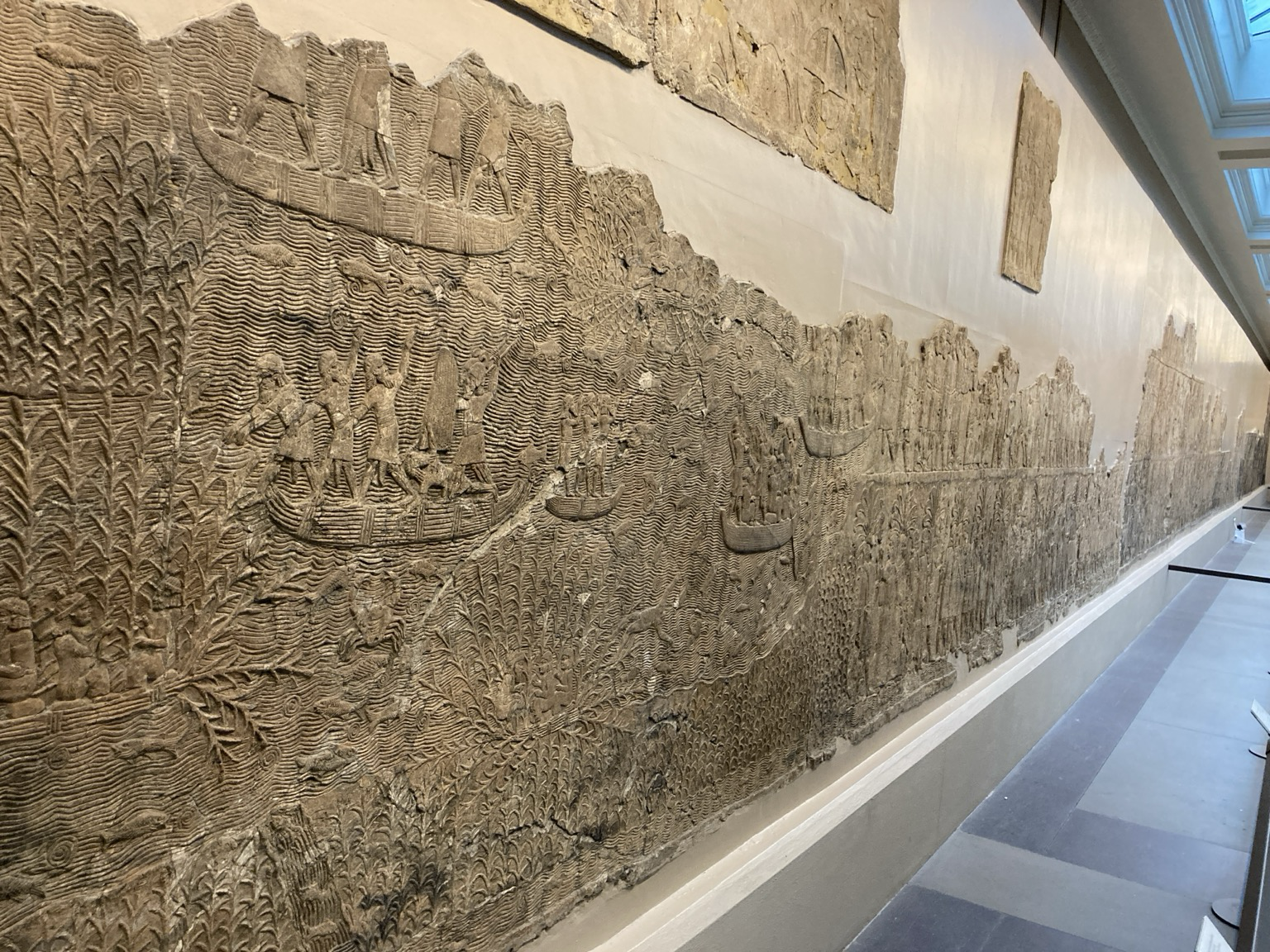
-
To my mind the British Museum isn’t mainly for aesthetic experiences, rather it’s for learning how people lived in many parts of the world over ~5 milliennia by glimpsing their material culture.
The Museum was able to acquire (or loot) some amazing objects like the immensely long relief from the palace of Nineveh near modern-day Basra.

-
 F myrmepropagandist shared this topic
F myrmepropagandist shared this topic
-
The British Museum has Yixing teapots!
It also has an insanely impractical (look at the spout!) teapot designed by some artiste in the 1980s.
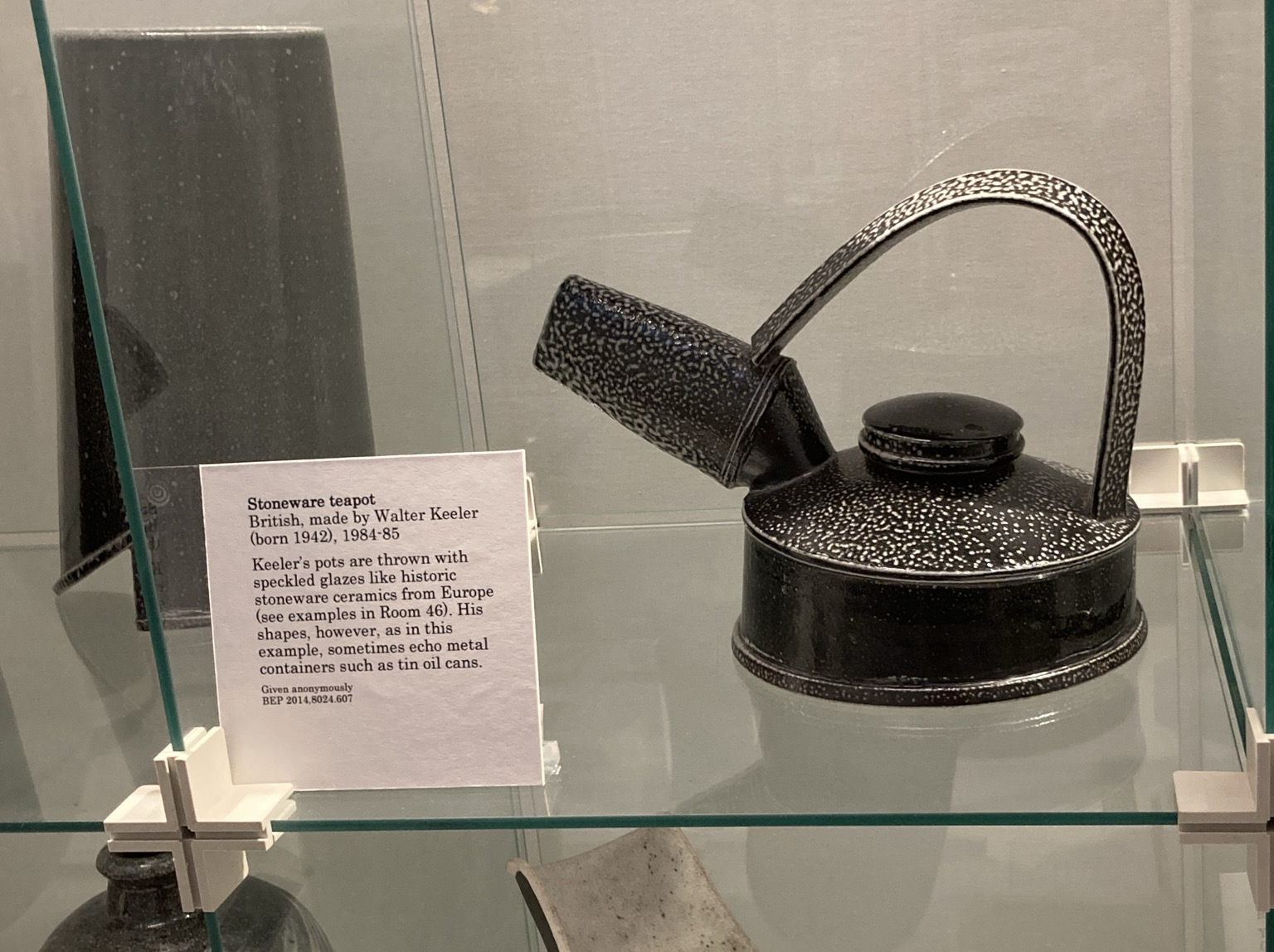
That 18th century pot is super interesting. The Brits had just started with tea so the early teaware was Chinese in style. But that changes over time, but also because the tea exported to Europe and the US tasted better with milk and sugar or else sugar and lemon since it just wasn't as subtile as high quality tea sold inside of China.
So the brew-ware adds sugar and milk bowls and so on.

